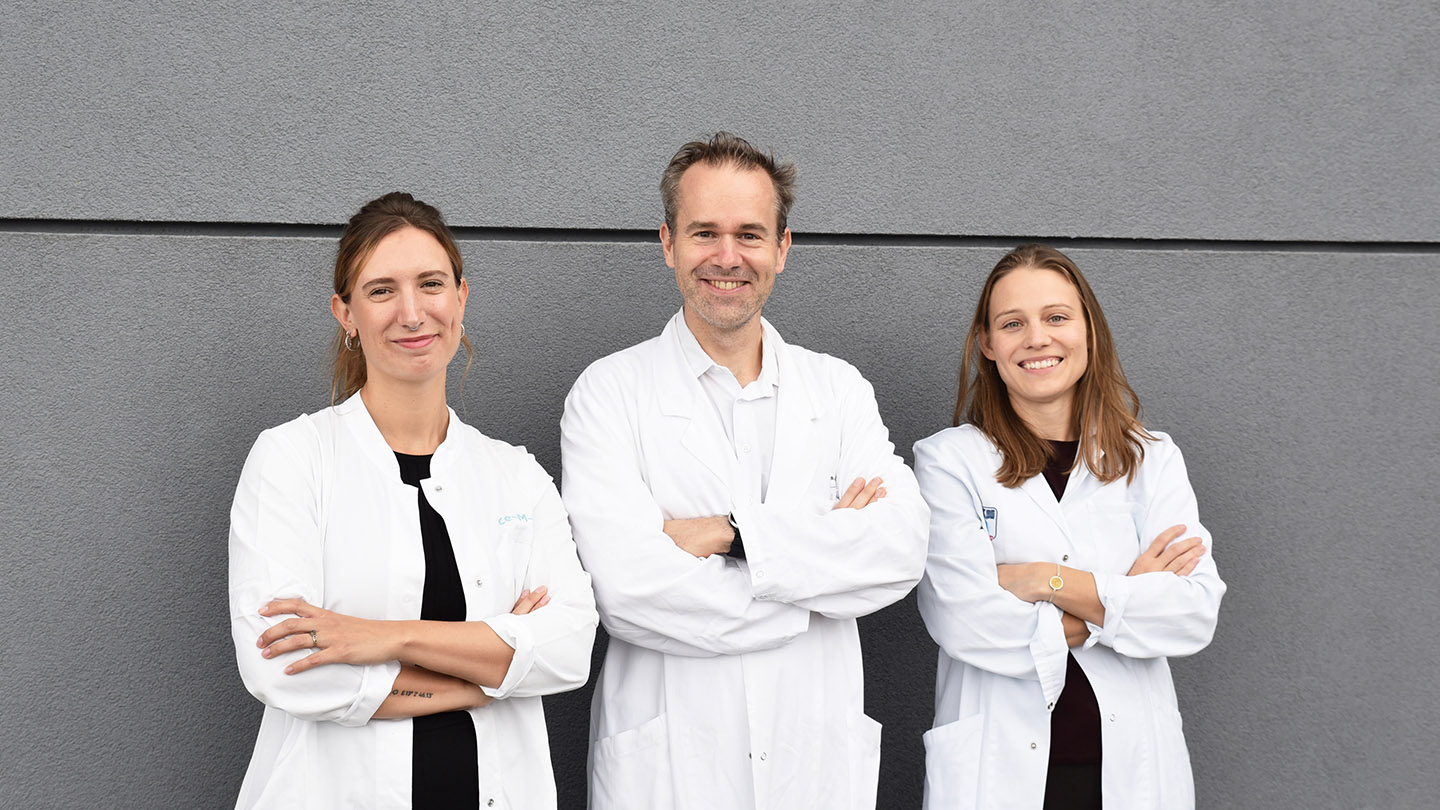
(Vienna, 14-12-2022) The Austrian Society of Dermatology and Venereology (ÖGDV) honoured MedUni Vienna researchers for their scientific achievements at its annual conference. Georg Stary received the Ferdinand von Hebra award, while Johanna Strobl and Laura Marie Gail of Georg Stary's research group were awarded the Science Award for a research paper.
The Ferdinand von Hebra Prize is presented by the ÖGDV every two years. The prize is not awarded for individual scientific papers, but for a coherent opus of several publications that have led to significant progress in the field of dermatological and/or venereological research.
Georg Stary is a senior physician at the Department of Dermatology at MedUni Vienna/Vienna General Hospital where he heads a research group. The "Stary Lab" focuses on "Translational Immunology in Mucosa and Skin (TIMS)". The researchers investigate the role of immune cells in host-pathogen interactions in physiological and pathological conditions of the skin and mucous membranes. They combine high-level clinical research using human tissue and mouse models with state-of-the-art techniques that allow relevant questions to be answered, with the ultimate goal of transferring the results to the clinic.
In addition to his affiliation at the Medical University of Vienna, Georg Stary is also Co-Director of the Ludwig Boltzmann Institute for Rare and Undiagnosed Diseases (LBI-RUD) and Adjunct Principal Investigator at the CeMM Research Centre for Molecular Medicine of the Austrian Academy of Sciences.
Johanna Strobl and Laura Marie Gail from Georg Stary's research group received the ÖGDV Science Award for their study "Human resident memory T cells exit the skin and mediate systemic Th2-driven inflammation", which was published in the "Journal of Experimental Medicine". Every year, more than 40,000 allogeneic haematopoietic stem cell transplants are performed worldwide, mostly for patients with leukaemia or other diseases of the haematopoietic system. Very often, this results in a so-called donor-versus-recipient reaction (graft-versus-host-disease, GvHD), an inflammatory disease that can affect different organs and is caused by an unwanted defence reaction of the donor cells and the body's own T cells. The researchers showed that these endogenous, tissue-based T cells migrate into the bloodstream and colonise other organs from there, for example the intestine, where they can contribute to inflammation. The study provides important approaches for better therapy in stem cell transplantation and new diagnostic possibilities.
Johanna Strobl studied human medicine at the Medical University of Vienna with stays abroad at the University of Stellenbosch (Cape Town, South Africa) and the University of Washington (Seattle, WA). She completed her PhD studies in the research group of Georg Stary in 2020 and has since worked as a clinician scientist at the University Department of Dermatology. Johanna Strobl has received several awards for her research work, such as the Egon Macher Prize of the Working Group of Dermatological Research and the Young Investigator Award of the Austrian Society of Haematology and Oncology. In November 2021, she was named MedUni Vienna's Researcher of the Month.
Laura Marie Gail studied Medical Biology at the University of Salzburg and has been a PhD student at the Ludwig Boltzmann Institute for Rare and Undiagnosed Diseases (LBI-RUD) since 2019. She is researching the role of cutaneous tissue-resident T cells of the skin in the group of Georg Stary, with a special focus on interactions of cutaneous T cells with structural skin cells in inflammatory diseases. She is part of the PhD programme at the Centre for Molecular Medicine of the Austrian Academy of Sciences (CeMM) and actively involved in the board of the Young Immunologists Austria (Next Generation Immunologists).